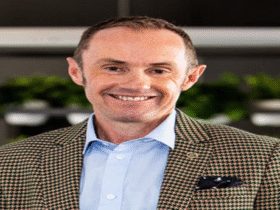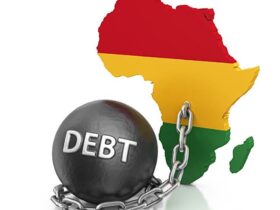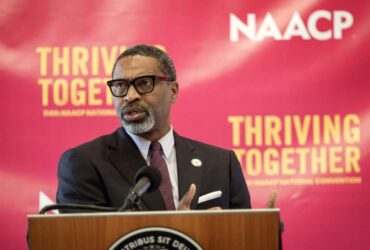Wave: Is there still faith in the practice of Venture capital among VCs?
- 1:45 pm
- October 16, 2023


LATEST POSTS
I had initially written about tech events needing a bit of inventiveness to become relevant. But what TechCabal’s Moonshot conference taught me was that sometimes new things are overrated and that the basic pillars of truly valuable events do not really change. If you make people feel good about being in a room with others, provide opportunities for them to meet people they respect, deliver solid content and minimise boring paternal keynotes in favour of insight and fun, your event will win! Especially if the event execution is as close to perfect as you can humanly manage.
It also helps to build up to the event. It is probably no coincidence that TechCabal’s biggest and best annual event so far was organised 10 years after the first TechCabal article was published. One hundred and twenty-one months ago, Odunayo Eweniyi was writing (as a TechCabal reporter) about interesting tech events to attend in July 2014. Last week she was speaking at the biggest tech event of the week in Lagos, and Piggyvest was a key sponsor. The world goes round and is not flat.
Someone said Moonshot has the potential to become that one pan-African tech industry event that everyone looks forward to every year. That means we sowed a good seed, and we’re looking forward to the next Moonshot in October 2024!
Next up on the event trail, I’m in the Dubai World Trade Center for GITEX Global throughout this week and looking forward to “Capital Meets Innovation” at Norrsken Africa Week Kigali in early November. If you’ll be at the Dubai Harbour or DWTC, hit reply and we can find some time to talk tech events, what I’m researching about Africa’s digital market, and the more important stuff like… whether VCs still believe in venture capital (see below).
Do Venture Capital Still Believe in VCing?
Discussing how African entrepreneurs may face greater challenges in raising funding due to VCs investing significant sums in poorly planned venture experiments or fraudulent businesses is a common topic. However, I strongly dislike this discussion because it not only distracts from more important issues but also feeds into misleading assumptions and preconceived notions. In this context, “priors” refer to the statistical likelihood of an outcome, regardless of unknown variables. To me, the message behind reports highlighting unethical founder behavior is clear: everyone involved needs to mature and stop blindly following the herd.
Addressing the issue of being overly conformist, it became evident in late 2022 that a bubble was bursting. The global VC community swiftly transitioned from readily providing funds to demanding profitability. While sheep can easily change direction, whaling ships can’t make quick turns, no matter how loudly the captain yells at the steering wheel. Notably, venture investors were originally envisioned as specialized intermediaries connecting high-risk, high-potential opportunities with capital from cautious sources.
When we deviate from this original purpose and create an asset class that behaves like a human version of a hedge fund trading algorithm, we risk turning venture capital into a cyclical machine closely aligned with public market sentiment. This contrasts with the idea of venture capital being defined by its pursuit of exceptional opportunities. In September, I posted a tweet questioning how many VCs still believe in the core principles of venture capital. The tweet by Stephen mentioned in the text captures a significant part of my concern.
I am deeply concerned that African VC may become too fixated on metrics and multiples at the early stages, losing sight of the broader, long-term vision.
Many of the VCs I know and deeply respect don’t fit the negative image that was portrayed. However, when combined with the discussions on platforms like Twitter, podcasts, and more, it’s evident that the venture capital industry is facing a growing identity crisis, which challenges its core principles. This identity crisis is not unique to African investors; it affects the broader venture capital landscape.
A tweet by Sam Lessin, in my view, encapsulates one aspect of this evolving venture capital identity crisis. Such crises can erode confidence and lead to a lot of self-doubt and uncertainty. Tweets like the one from Will Manidis, a Thiel Fellow and former fund manager, which playfully poke at the average VC returns, don’t help the fragile egos of VCs who are dealing with depressed returns in 2023.
However, moments of industry-wide self-doubt also create opportunities for leadership to emerge. This was true during the economic challenges of the late 1970s, after the dot-com bubble, and it may be true for investors grappling with the aftermath of the recent bubble. If the right lessons are learned, this could be a defining moment for the industry.
Other News


















